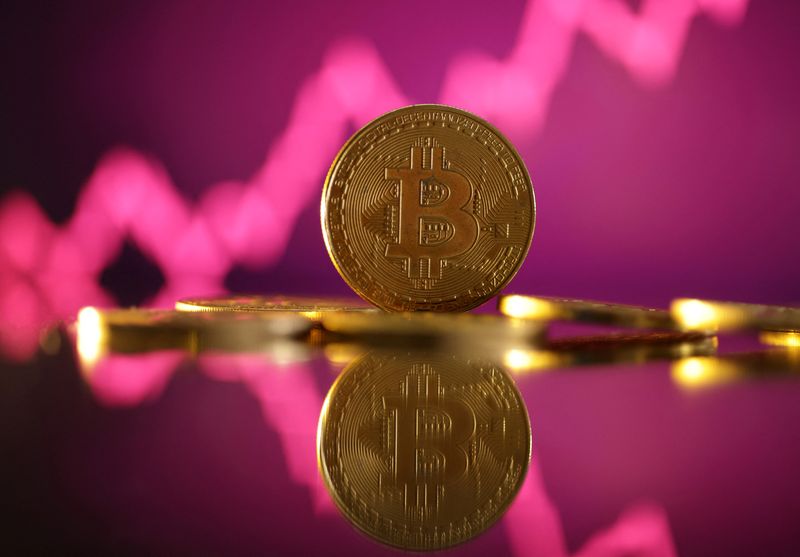Medha Singh and Lisa Pauline Matakal
It's been a tough year for bitcoin miners, with mining rewards halving, mining difficulty increasing, and a new Bitcoin exchange-traded fund (ETF) stealing investor capital.
Shares in Marathon Digital and Riot Platforms, the largest U.S.-listed miners, have fallen about 10% and 33%, respectively, so far this year, but bitcoin has risen 60% this year to $67,859 after hitting an all-time high in March.
Mining stocks closely track Bitcoin's movements because their profit margins increase as Bitcoin's price rises.
However, market analysts note that the launch of 11 bitcoin ETFs earlier this year has led some investors to pull out of mining stocks, one of the few that offer exposure to bitcoin, and switch to ETFs that track the spot price.
“We are seeing a lot of institutional capital flowing into ETFs rather than using miners as a proxy for exposure to bitcoin,” said Pascal Saint-Jean, president of global digital asset investment manager 3iQ.
Power-hungry miners compete to solve complex mathematical puzzles to build the Bitcoin blockchain and earn rewards in the form of new Bitcoins.
Bitcoin's reward was halved to 3.26 BTC per block in April, following a technical adjustment that takes place roughly every four years and is intended to slow the rate at which new BTC are generated.
As a result, miners' revenue per transaction has fallen from over $192 in March to just $60 today, the lowest since September of last year, according to data from Blockchain.com.
Bitcoin's network difficulty – a measure of how hard it is to mine one Bitcoin block – has been rising fairly steadily since the beginning of the year, hitting an all-time high in early May, according to data from Blockchain.com.
“Mining companies have to work hard to become more efficient, which typically involves investing in better hardware,” said David Morrison, an analyst at brokerage Trade Nation.
JPMorgan said in May that 14 U.S.-listed miners, which account for 23% of global bitcoin mining power, were well positioned to take advantage of the new environment.
This is mainly due to greater access to financing, especially equity financing, which will “help expand operations and invest in more efficient facilities,” JPMorgan analysts said.
JPMorgan added that publicly traded bitcoin miners are set to raise more than $3 billion in equity capital in the first quarter of 2024, the highest amount in the past two years.
To keep energy costs down, some companies have resorted to relocating operations to countries where energy prices are more affordable and governments are friendly to digital assets.
“We're not as optimistic about the U.S. because of potential risks like tax negotiations,” said Youwei Yang, chief economist at BitMining, noting the Ethiopian new base.
M&A and Data Center Expansion
As bitcoin miners' revenues decline, market analysts expect there to be more mergers between bitcoin miners as more capitalized companies target less efficient miners to stay competitive.
CleanSpark purchased more mining equipment and acquired a small mining facility earlier this year.
“The market remains divided between companies that have access to capital and are well positioned to grow, and less fortunate companies that are likely to sell off due to declining revenues post-halving,” said Gregory Lewis, an analyst at brokerage BTIG who covers U.S.-listed bitcoin mining companies.
Seeking further revenue, some cryptocurrency mining companies are jumping on the artificial intelligence boom, tapping into existing energy-hungry computing power to power the needs of AI systems.
Miners such as Bit Digital, Hut8 Iris Energy and Core Scientific are expanding into AI services and high-performance computing.
“There are a plethora of small-scale bitcoin miners, while demand for generative AI and compute-dense data centers continues to grow, creating competition for land and power,” said Bernstein analyst Gautam Chugani.
(Reporting by Medha Singh and Lisa Pauline Matakkal in Bengaluru; Editing by Sharon Singleton)

